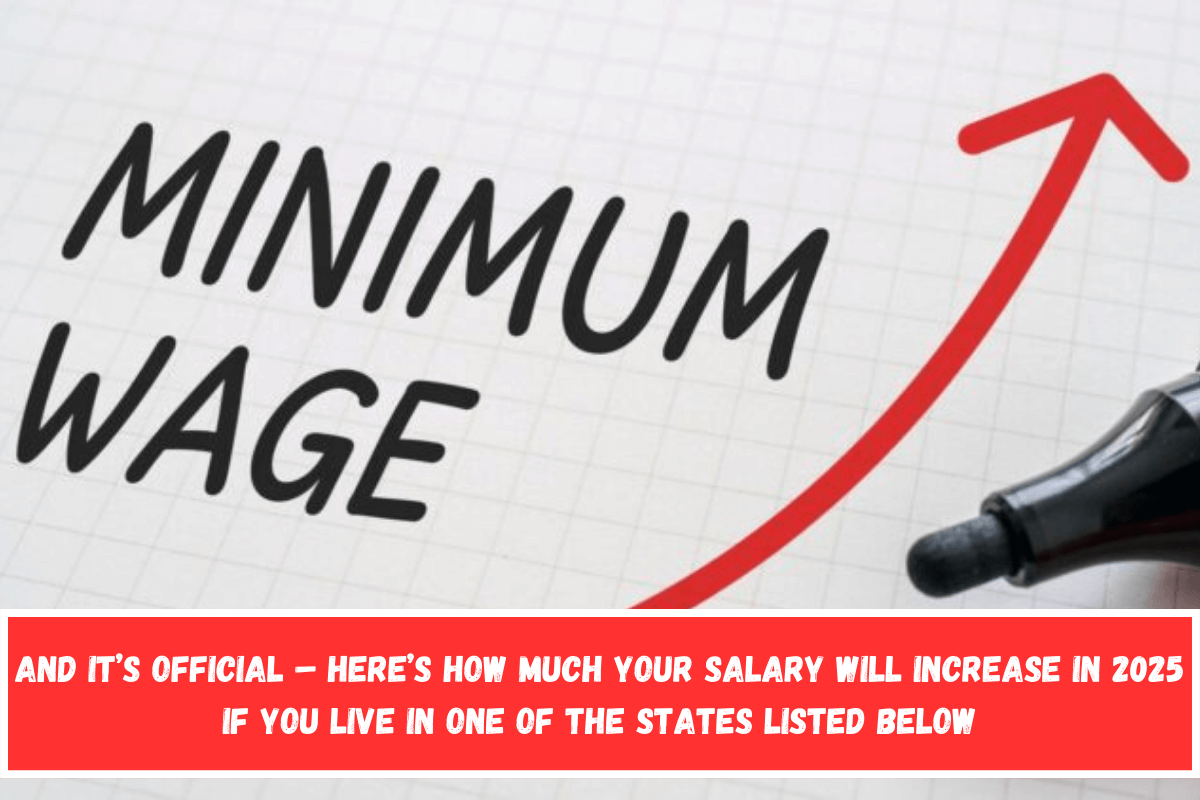The New York tri-state area will officially begin the year with a minimum salary increase. If you live in this area, find out more about this year’s minimum wage increases in New York, New Jersey, and Connecticut.
The minimum wage debate was recently reignited by President-elect Donald Trump, who stated that the federal minimum wage of $7.25 per hour is extremely low and that he would consider raising it.
Furthermore, he recognized that a one-size-fits-all approach would be ineffective, citing stark differences in living costs between states such as California and Mississippi. These remarks from a recent interview highlight the ongoing conflict over wage regulations and their effects on businesses and workers throughout the country.
Even though some jurisdictions are actively pursuing higher pay floors, the consequences of these laws remain highly problematic.
Starting January 1st, millions of workers in the United States will see their minimum wage increase to $7.25 per hour. Millions of American families are affected because this figure has remained unchanged since 2009 and is insufficient to cover the current cost of living.
As a result, some states in the United States have chosen to enact laws that annually raise the state minimum wage.
Here’s how much your salary will increase in these states
Since the start of the pandemic, the wages of those at the bottom of the wage scale have increased significantly, rising faster than those at the top.
Americans should be aware that the federal rate has remained at $7.25 per hour for the past 15 years. However, the minimum wage has been raised in many states, counties, and towns, often significantly higher than the federal level.
Increased minimum wages frequently encourage automation as businesses seek alternatives to paying higher labor costs. Fast food restaurants, for example, are replacing cashiers with self-service kiosks that do not need benefits, breaks, or overtime.
This transition creates opportunities for higher-paying jobs in designing and maintaining these machines while eliminating entry-level positions on which many low-skilled workers rely.
Robots and AI technologies are gradually replacing human labor in a variety of fields, including warehousing and customer service.
Currently, 30 states, plus the District of Columbia, have legislation that provides for a higher minimum wage than the federal minimum wage, including the tri-state area of New York, which includes the Big Apple, New Jersey, and Connecticut.

The minimum wage in New York will increase by $0.50 on January 1, 2025, while in New Jersey and Connecticut it will increase by $0.36 and $0.66, respectively. Based on current salaries, the following are the minimum salary amounts in the New York tri-state area for next year:
- Connecticut: $15.69 to $16.35 per hour
- New Jersey: from $15.13 to $15.49 per hour
- New York: The salary will increase by 0.50 per hour, which means it will reach $15.50 per hour, except for New York City, Long Island, and Westchester, where it will increase up to $16.50 per hour.
By 2025, Connecticut will be among the states with the highest minimum wages, having surpassed the $16 hourly threshold with this new increase. Some New York cities will have minimum wages higher than $16.
What should Americans do if their salary doesn’t increase?
New York, New Jersey, and Connecticut have all passed legislation raising the minimum wage. You can file a complaint if your employer violates state laws by using:
It is important to note that states that do not have such laws follow the federal minimum wage of $7.25 per hour. For more information, visit your state’s Department of Labor website.
